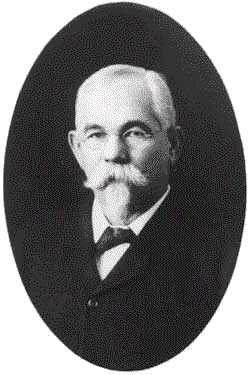|
The
Raymond Fencibles
During the winter of 1861, the scene in Raymond was one of patriotism as citizens prepared to send their men off to war. Women waved their flags and sang rousing renditions of Dixie and The Bonnie Blue Flag. They also held fundraisers in order to help provide necessary equipment such as guns and uniforms. In April of 1861, the Raymond Fencibles traveled to Corinth, Mississippi, where they joined the Twelfth Mississippi Infantry Regiment stationed at Camp Clark. In addition to the Raymond Fencibles, nine other companies joined with the Twelfth Mississippi: The Natchez Fencibles; Lawrence Rifles (Brookhaven); Pettus Rifles (Crystal Springs); Vicksburg Sharpshooters; Sardia Blues (Sardis); Satartia Rifles (Yazoo City); Charlie Clarke Rifles (Jefferson & Copiah Counties); Durant Riflemen; and the Claiborne Guards (Port Gibson). Since the Raymond Fencibles were the first company to arrive at Camp Clark, they were designated Company A. On May 25, 1861, after the remaining companies finally arrived, the Twelfth Mississippi Infantry Regiment was formally organized. Thomas Gregory Dabney, son of probate judge Augustine Dabney of Raymond, recalled the Raymond Fencible as they left for war. “In March or April, 1861, the Raymond Fencibles, from Raymond, Miss., under Capt. William H. Taylor, was the first military company to arrive at Corinth. When we left the train, Capt Taylor ranged us up to the hotel bar. And gave us all drinks. We then had dinner at the hotel, after which we were marched out to the suburbs of the little town and went into our first camp. In the course of a few weeks other companies arrives and the Twelfth Regiment was organized, with Col. Richard Griffith, commander. The Raymond Fencibles were accorded the position of Company A, by virtue of being the first to arrive on the ground.” On July 9, 1861, the Twelfth Mississippi Infantry was ordered to Virginia and attached to Richard Griffith’s Brigade, D. H. Hill’s Division of Longstreet’s Corps. Dabney reminisced about the journey to Virginia: “The Twelfth Mississippi was then full of twelve hundred strong, of light-hearted lads. A week before the battle of Manassas we were ordered to prepare three days’ rations and embarked for Virginia in a box car, on plank seats extended across the cars without any backs. The weather was extremely hot, and we were very much crowded. The first service our muskets were employed in was to knock the side boards off the cars. We occupied a week on the journey, more than half the time being without food, except an occasional supply of bread that was telegraphed for ahead. And yet, we traveled along merrily singing in cheerful mood, looking upon the whole business as a great joke.” The Twelfth Mississippi did not arrive in Virginia in time to fight in the Battle of Bull Run (First Manassas). During the winter of 1861-1862, the regiment was attached to an Alabama Brigade under General Rodes and quartered near Centreville, Virginia. By this time, hardships had begun to plague the regiment. First, there were sicknesses that resulted in honorable discharges for many of the men. Others were honorably discharged after they were found to be under age. Citizens of Raymond followed the Raymond Fencibles and news of the war with great interest. George Harper, owner and editor of the Hinds County Gazette, wrote, “After the Battle of Bull Run, the people of Hinds County, Mississippi, took their rifles, shotguns and pistols to the offices of the Raymond Gazette to be turned over to the state to help arm new regiments until the government could provide the men with regulation military arms.” Thomas Gregory
Dabney The Battle of Seven Pines had been a hard fought battle but nothing had prepared the Raymond Fencibles for what they would encounter one month later. On June 30, 1862, the Raymond Fencibles were engaged in the Battle of Frasier’s Farm, a bloody battle that finally yielded a Confederate victory. Of this battle, one soldier recalled: “The situation was terrible in the extreme. Desperate men of both sides used their bayonets; officers, their swords and pistols. The scene at the field hospital that night was heartrending. Oh, I’ll never forget the groans and the intense agony of my torn and bleeding comrades and our noble Wilcox passing among the hundreds of wounded and dying heroes, wringing his hands and weeping as if his great heart would break, and saying, ‘My poor boys! My poor boys!’” As the war progressed to other fields of battle, the casualties continued to rise and the number of soldiers fighting with the Raymond Fencibles was dramatically reduced. Many of the men were captured or reported missing. Others were killed and buried on battlefields far from home.
Historic Sources: Military Annals of Mississippi, compiled by J. C Rietti; The Twelfth Mississippi Volunteer Infantry Regiment, Frank H. Foote, and Service Records from the Mississippi Department of Archives and History.
|
||||
|
© 2003-2005, all rights reserved |

